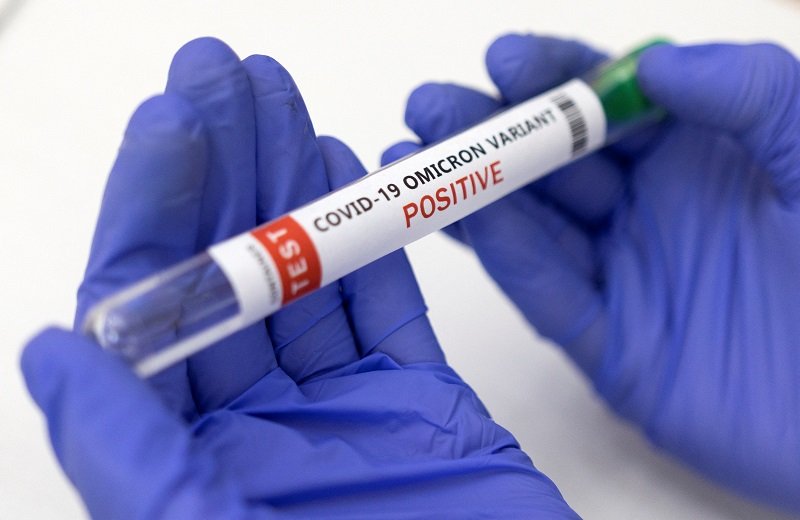
Test tube labelled “COVID-19 Omicron variant test positive” is seen in this illustration picture taken January 15, 2022.
11:50 JST, September 2, 2022
(Reuters) – The U.S. Centers for Disease Control and Prevention (CDC) on Thursday recommended the use of redesigned COVID-19 booster shots for people aged 12 years and older to target the BA.4 and BA.5 Omicron subvariants of the coronavirus.
The green light for the use of redesigned Omicron COVID boosters will enable millions of the retooled shots to roll out by the end of the weekend as part of a nationwide revaccination campaign.
The CDC’s Advisory Committee on Immunization Practices voted 13-to-1 in favor of the updated boosters by Pfizer PFE.N/BioNTech 22UAy.DE and Moderna MRNA.O.
“The updated COVID-19 boosters are formulated to better protect against the most recently circulating COVID-19 variant,” CDC Director Rochelle Walensky said in a statement.
On Wednesday, the Food and Drug Administration authorized the updated vaccinations, often called bivalent shots, that target the dominant BA.4 and BA.5 Omicron subvariants as well as the original virus.
FDA officials said on Wednesday they believe the updated shots should be available to a broader population than the previous boosters, as they may help younger people avoid long COVID, which can leave them suffering debilitating symptoms for months.
The FDA authorized the Pfizer/BioNTech shots for people aged 12 and older and the Moderna booster for those 18 and over, if they have received a primary vaccine series or a booster at least two months before. The previously authorized monovalent vaccine will no longer be available as a booster shot for those age groups.
Pfizer said on Thursday it hopes to ask the FDA for authorization in five- to 11-year-olds in early October.
CDC and FDA officials have said they believe the shots will boost immunity against the virus ahead of the winter season, when infections tend to rise as people spend more time indoors, where the virus is more easily transmitted.
Second boosters are now restricted largely to people over age 50 and those who are immunocompromised or at high risk.
During Thursday’s meeting, CDC officials suggested people who have had COVID should wait at least until they have completed their isolation to receive a booster and may consider waiting three months.
Vaccine makers have yet to complete human trials for the newly authorized boosters, and some advisory committee members expressed reservations over a lack of data. Most of the available data on the redesigned boosters comes from lab and animal studies.
“I understand we need better vaccines because obviously we’re still having a lot of COVID despite vaccination,” said committee member Dr. Pablo Sanchez, a professor of pediatrics at Ohio State University, who voted against the recommendation. “But I’m struggling with making a recommendation for a bivalent vaccine that has not been studied in humans.”
The FDA in June said it would not require studies testing the shots in humans for authorization, similar to how annual changes to flu vaccines are cleared.
Top Articles in News Services
-

Survey Shows False Election Info Perceived as True
-

Hong Kong Ex-Publisher Jimmy Lai’s Sentence Raises International Outcry as China Defends It
-

Japan’s Nikkei Stock Average Touches 58,000 as Yen, Jgbs Rally on Election Fallout (UPDATE 1)
-

Japan’s Nikkei Stock Average Falls as US-Iran Tensions Unsettle Investors (UPDATE 1)
-

Trump Names Former Federal Reserve Governor Warsh as the Next Fed Chair, Replacing Powell
JN ACCESS RANKING
-

Producer Behind Pop Group XG Arrested for Cocaine Possession
-

Japan PM Takaichi’s Cabinet Resigns en Masse
-

Japan Institute to Use Domestic Commercial Optical Lattice Clock to Set Japan Standard Time
-

Man Infected with Measles Reportedly Dined at Restaurant in Tokyo Station
-

Israeli Ambassador to Japan Speaks about Japan’s Role in the Reconstruction of Gaza






















